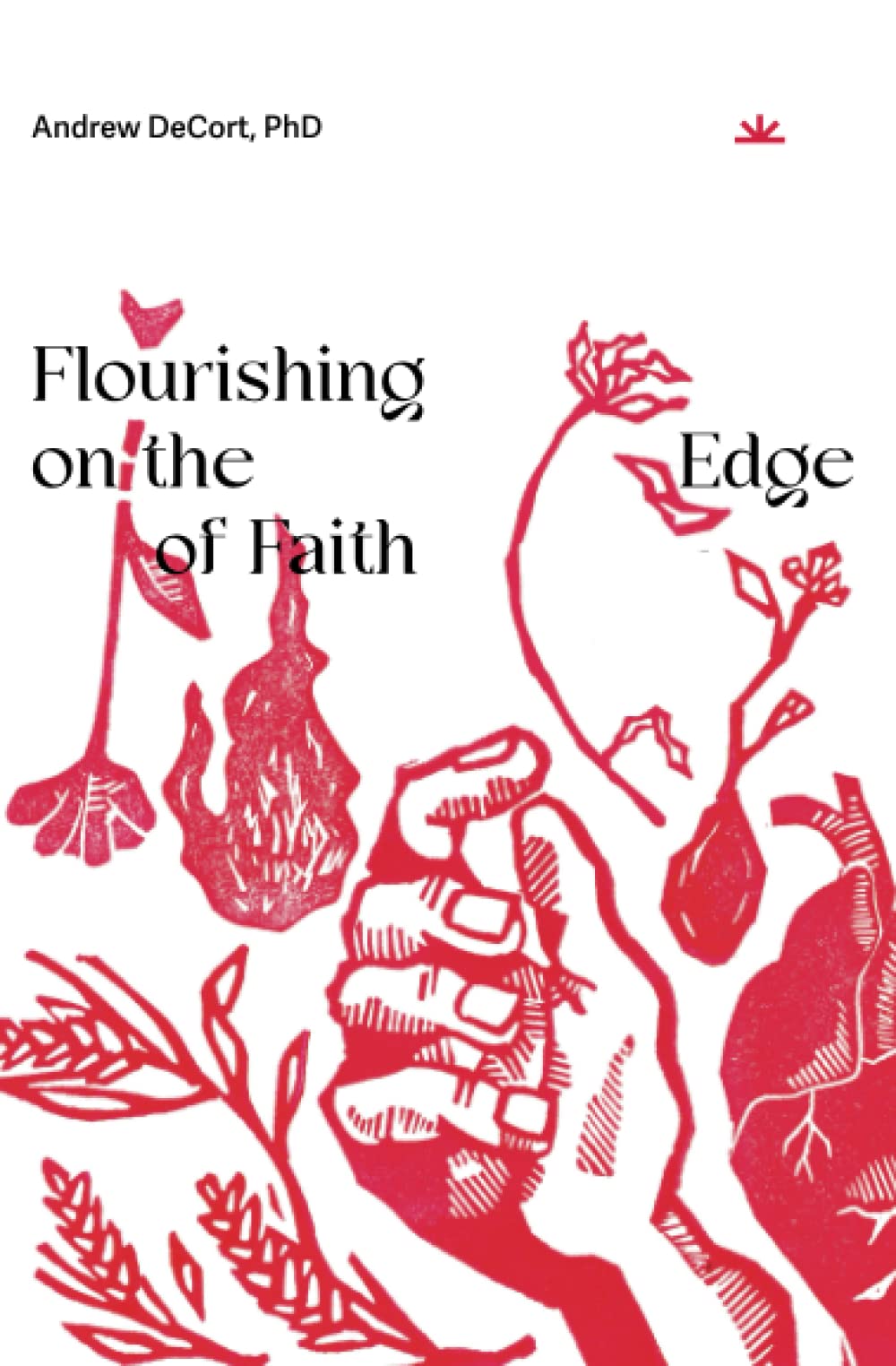Have you ever found yourself doubting the efficiency of prayer? Many Christians have found themselves questioning their beliefs and faith as a result of their past experiences. It gets worse when they don’t receive support from the church or don’t get answers to their questions.
Flourishing on the Edge of Faith by Andrew DeCort, Ph.D., is a spiritual guide that focuses on prayer, specifically “The Lord’s Prayer,” explaining what the words mean and teach. It shows readers how to live a life of flourishing by praying the way that Jesus taught the crowd in ancient Palestine. To live a flourishing life implies one that is more fully alive, energized, and can endure distress and pain.
Praying brings us closer to our heavenly father, so it’s important that we practice prayer and not make it a habit. I agree with the author’s statement that practice makes permanent, especially when it comes to opening our hearts to God. As we continue to do it, we get better at it and gain a deep sense of satisfaction. Achieving a flourishing life that will be everlasting indeed begins by acknowledging and embracing the presence of God, our Father.
Again, the author explains how each person can have a different perspective on God. Some people might refer to God as their father, while others refer to God as their mother. No matter the circumstances, God wants us to accept his love for us and understand his promise that he will never disappoint or leave us. There are personal stories sprinkled throughout the book that are testimonies of God’s love.
I loved reading about the teachings of Christ and how we can adopt them. The author pointed out that it is human nature to engage in violence while supporting their beliefs, but Jesus is against violence. The author calls on Christians worldwide to be like Christ and say no to violence. He preaches reconciliation and forgiveness. Holding grudges in the mind is a burden, but forgiving, no matter how difficult, forges the way for new and healthy relationships.
There is a study guide at the end of the book, which makes it easier for readers to access specific information in the book. And the thought-provoking questions based on each chapter in the book will cause readers to reflect on what they have read earlier. These are ways to ensure that the reader gets the most out of the book.







